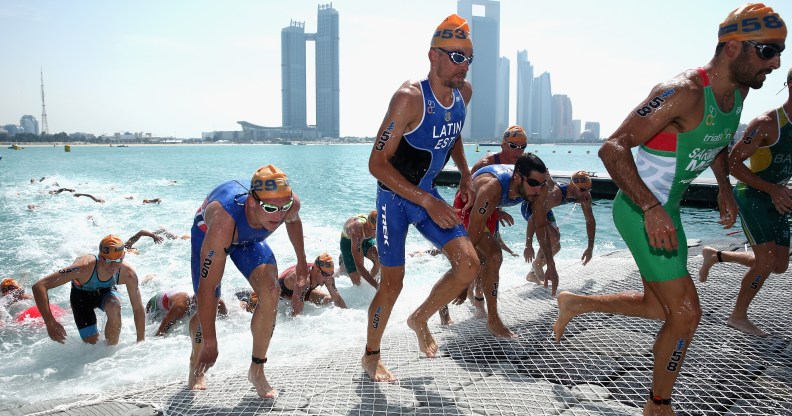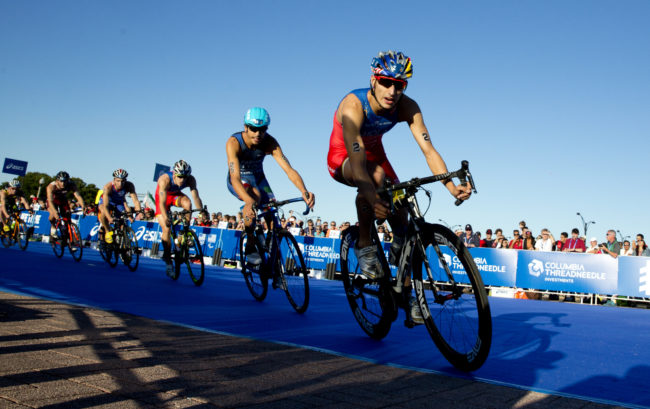Rainbow flags banned from triathlons

The Elite Men leave the water during the 2016 ITU World Triathlon Abu Dhabi on March 5, 2016 in Abu Dhabi, United Arab Emirates. (Warren Little/Getty)
The International Triathlon Union has imposed a ban on rainbow flags at official triathlon events.
The international sporting organisation, which is the governing body for triathlon events across the world, imposed the new rule in its recently-revised 2019 rulebook.
Under the changes, the competition rules now state: “Athletes will avoid displaying any kind of demonstration of political, religious, sexual orientation or racial propaganda.”

The 2015 ITU World Triathlon Grand Final on September 19, 2015 in Chicago, Illinois. (Tasos Katopodis/Getty)
Previous versions of the same rule were identical except for the words “sexual orientation,” which appear to have been added in an attempt to prevent rainbow flags from being flown or displayed in any way.
Athletes who violate the conduct rules could face disqualification from events.
International Triathlon Union defended the ban
The body defended the change to Outsports, claiming the change “is a similar wording that is included in many other sporting organisations.”
However, the only apparent similar wording is in the Olympic Charter, which includes an identical list of prohibitions without the reference to sexual orientation.
The Olympic Charter states: “No kind of demonstration of political, religious or racial propaganda is permitted in any Olympic sites, venues or other areas.”
Gay triathletes plan to defy the rules
Gay triathlete Jack Bristow told Outsports, “This change of policy is a step backwards.
“I’ve flown a rainbow flag at a race before because I’m proud to be a gay athlete and I want to be a visible example so that other LGBT people feel like they can get involved.
“To have my pride equated with political extremism and to be told to go back in the closet for my own safety is insulting.”
Bristow told the outlet he plans to flout the rule at upcoming European championships, where in 2018 he placed first in his age group.
The ban makes no mention of gender identity, so may not apply to transgender flags.
In 2015, trans endurance runner Chris Mosier represented the United States at the duathlon World Championships.
He said at the time: “Many transgender athletes stop competing when they transition categories. I want people to know it is possible to maintain an identity as an athlete and transition.
“When I was considering transition, I did not see transgender men competing at a high level in the way I aspired to compete. I am excited to be a visible example for other trans athletes or people considering a medical transition.”
Mosier later became the first transgender athlete to feature in a Nike advert, which aired during the 2016 Rio Olympics.

